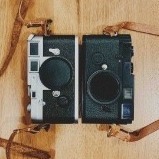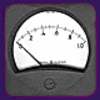Quote of the decade about film vs. digital
-
Recently Browsing 0 members
- No registered users viewing this page.
-
Similar Content
-
- 6 replies
- 566 views
-
- 10 replies
- 437 views
-
- 230 replies
- 11,101 views
-
- 58 replies
- 6,592 views
-
- 2 replies
- 434 views
-



Recommended Posts
Join the conversation
You can post now and register later. If you have an account, sign in now to post with your account.
Note: Your post will require moderator approval before it will be visible.